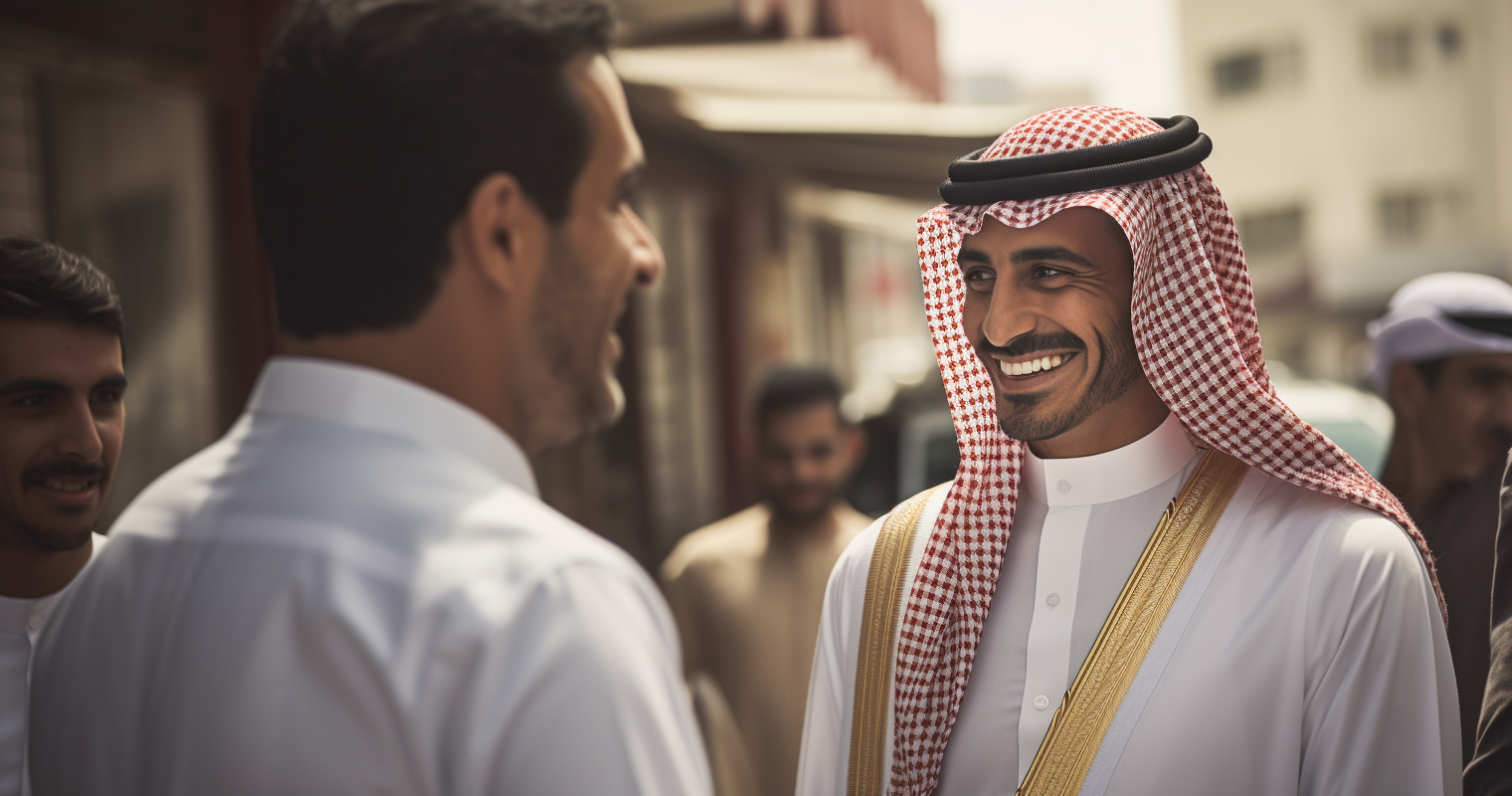Bahrain, the archipelagic island country in the Persian Gulf, is a vibrant, cosmopolitan place that stands as a multicultural and multifaith symbol in the Middle East. As a hub of expats from all around the world, Bahrain is known for its liberal lifestyle and warm hospitality. However, like any country, it comes with its cultural norms and etiquettes which every expat should understand and respect. This guide will provide Western expats with key cultural insights to aid their transition into Bahraini society.
Understanding Islamic Culture and Traditions
The Kingdom of Bahrain, located in the Arabian Gulf, is steeped in Islamic traditions which greatly influence its society and day-to-day life. As a Muslim-majority country, the rhythm of life is often dictated by the Islamic calendar and prayer times. During the holy month of Ramadan, for example, Muslims fast from dawn to dusk and life slows down to accommodate the spiritual focus of this time. During these hours, it’s important to be respectful of those fasting by refraining from eating, drinking, or smoking in public.
In addition to Ramadan, other significant Islamic holidays observed in Bahrain include Eid al-Fitr (marking the end of Ramadan), Eid al-Adha (Feast of Sacrifice), and Mawlid al-Nabi (the Prophet Muhammad’s birthday). Each of these holidays has its own customs and traditions that are widely practiced throughout the country.
Understanding Ramadan – Provides a comprehensive understanding of the practices and significance of Ramadan.
Dress Code
Bahrain has a more liberal dress code than many of its Middle Eastern neighbors, but it’s still appreciated and respectful to dress modestly. While women aren’t required to wear an abaya or headscarf, clothing should cover shoulders and knees, especially in public areas and religious sites. Men are also advised to dress modestly, with shorts and sleeveless shirts typically considered inappropriate in public.
Social Etiquettes
Bahrainis are renowned for their warmth and hospitality. When invited to a local’s home, it’s customary to bring a small gift, like sweets or flowers, but alcohol should be avoided.
In Bahrain, greetings between the same gender often involve a handshake and sometimes a kiss on each cheek, though physical contact between different genders in public can be considered inappropriate unless the woman extends her hand first.
Bahraini culture, like many others in the Middle East, places significant emphasis on the right hand, which is considered pure, while the left hand is traditionally seen as unclean. Therefore, always use your right hand for eating, greeting, or giving and receiving items.
Respecting privacy is important in Bahraini culture. Always ask permission before photographing locals, especially women, and respect areas where photography may be prohibited.
Language
Bahrain is a multilingual country where English is widely spoken and understood, especially in business and tourism sectors. However, Arabic remains the official language, and gaining some familiarity with Arabic phrases can be valuable. This can help you better navigate the local markets, communicate with taxi drivers, and can be appreciated by the locals as a sign of respect for their culture.
Basic Arabic Phrases – An easy guide to learning basic Arabic phrases useful for day-to-day activities in Bahrain. Link here
Arabic Learning Resources – Comprehensive resources for learning Arabic, starting from the basics. Link here
Public Behavior
Bahrain, like other Gulf countries, is a conservative nation where public behavior is regulated by social norms and laws. Public displays of affection are not generally accepted and are best kept to a minimum. Conversations about sensitive topics, such as politics, religion, and criticism of the royal family or government, should be approached with care as these could potentially lead to legal issues. Additionally, it’s important to remember that during the holy month of Ramadan, drinking, eating, or smoking in public during daylight hours is prohibited.
Respect for Religion
Bahrain takes pride in its religious tolerance and diversity. The majority of the population practices Islam, but there are also significant Christian, Hindu, and Buddhist communities. While there is freedom of religion, it’s important to demonstrate respect towards all religious practices and places of worship. When visiting religious sites, adhere to guidelines, such as dressing modestly and maintaining quiet. Many mosques in Bahrain do not permit non-Muslims to enter, with some exceptions such as the Al-Fateh Grand Mosque which allows guided tours for visitors.
Religious Etiquettes – Overview of religious customs and etiquettes in Bahrain. Link here
Visiting a Mosque – A Guide for Non-Muslims – A guide explaining the customs and etiquettes when visiting a mosque. Link here
Al-Fateh Grand Mosque – Information about visiting the Al-Fateh Grand Mosque, one of the largest mosques in the world. Link here
Conclusion
Living in Bahrain can be a wonderful experience for Western expats, offering a blend of rich traditions and modern cosmopolitan life. Respecting local customs and traditions and understanding the social etiquette will not only help you integrate better but also deepen your appreciation of Bahrain’s rich cultural tapestry. While this guide provides a helpful overview, remember that the best way to understand a culture is to immerse yourself in it, interact with the locals, ask questions, and keep an open mind.

